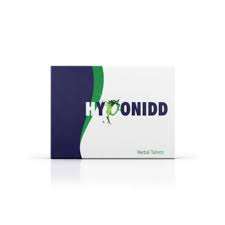Have you ever seen an African woman so obsessed about becoming pregnant or becoming a mother? Apart from the inconspicuous steps she would take like monitoring her cycle or ovulation, she would buy every baby item she stumbles on if she has the financial capability to do so. She becomes interested in baby names and their meanings. If the miracle does not happen as she expects, she will begin to panic and seek for solutions wherever to whatever issues responsible for her infertility because the pride and joy of every African woman is in motherhood.
One of the most common but treatable causes of infertility in women today is known as Polycystic Ovarian Syndrome (PCOS).
Polycystic ovary syndrome (PCOS) affects 1 in 10 women of childbearing age. 18% prevalence has been reported in South Eastern Nigeria. Many women have PCOS but do not know it. In one study, up to 70 percent of women with PCOS hadn’t been diagnosed.
What is PCOS?
Polycystic ovary syndrome (PCOS) is a hormonal disorder common among women of reproductive age. Women with PCOS may have infrequent or prolonged menstrual periods or excess male hormone (androgen) levels. The ovaries make the egg that is released each month as part of a healthy menstrual cycle. With PCOS, the egg may not develop as it should or it may not be released during ovulation as it should. In order words, The hormonal imbalance creates problems in the ovaries.
PCOS could also be the presence of one or more of the following; cysts (growth) in one or both ovaries, higher amounts of male hormones (testosterone) and Irregularity in the menstrual cycle
What causes of PCOS?
The exact cause of PCOS is not known. Factors that might play a role include:
• Excess insulin. Insulin is the hormone produced in the pancreas that allows cells to use sugar, your body’s primary energy supply. If your cells become resistant to the action of insulin, then your blood sugar levels can rise and your body might produce more insulin. Excess insulin might increase androgen production, causing difficulty with ovulation.
• Low-grade inflammation. This term is used to describe white blood cells’ production of substances to fight infection. Research has shown that women with PCOS have a type of low-grade inflammation that stimulates polycystic ovaries to produce androgens, which can lead to heart and blood vessel problems.
• Heredity. Research suggests that certain genes might be linked to PCOS.
• Excess androgen. The ovaries produce abnormally high levels of androgen, resulting in hirsutism (s a condition of unwanted, male-pattern hair growth in women) and acne.
•
Some problems that PCOS presents:
Irregular menstrual periods
Increased facial hair
Acne
Weight gain
Infertility
HOW IS PCOS TREATED?
PCOS treatment focuses on managing individual concerns, such as infertility, hirsutism, acne or obesity. Specific treatment might involve lifestyle changes or medication
The Dietary and Life-Style Management in Polycystic Ovarian Syndrome (PCOS)
Polycystic ovary syndrome (PCOS) is typically earmarked by irregular periods or by no menstruation at all. Women with PCOS typically have multiple cysts in their ovaries, caused by an overproduction of hormones called androgens.
Around 50 percent of women with the disorder are overweight or obese. Common symptoms include acne, hirsutism (hairiness), and male pattern baldness.
While it is always important to consult your doctor about serious conditions, there are a few well recognized diet and lifestyle changes that can help reduce the severity and prevalence of PCOS symptoms.
- Eat and Drink Wisely:
Low glycemic index (GI) foods are carbohydrates that are absorbed into the body slowly and therefore, don’t result in a dramatic spike in blood glucose levels. This will result in subsequent drop in insulin levels. By decreasing the amounts of high-GI foods that cause sugar spikes, such as refined sugars, white bread, simple starches and processed foods, your blood sugars will be kept in balance which will result in less extreme cravings and mood swings - Balance Your Daily Intake of Protein and Carbohydrates
Eating equal amounts of protein and carbohydrates assists in keeping your insulin levels even, therefore, maintaining a healthy balance of hormones. The type of carbohydrates that you eat is also an important factor in this process. Try to consume only wholegrain, or sprouted grain products as they naturally contain more protein and fiber than their processed equivalents. Fiber is another important element that assists in managing PCOS, as it slows the digestion of sugars within the body - Limit Junk Food and Avoid Binge Eating:
Junk foods can trigger binge eating episodes in some women, especially when you’re stressed or emotional. Added sugars, in particular, increase insulin resistance and can contribute to weight gain in the context of excess calories. - Daily Exercise to Stay Active and Fit:
Exercise is an important component in treating PCOS as it improves insulin sensitivity, enhances metabolism and helps to shed any excess weight which might come about as a result of hormone imbalances. A variety of different exercise is recommended, ranging from resistance training to aerobic workouts. It is found that people who participate in resistance training showed better improvement in insulin sensitivity than those who only took part in aerobic exercise. - Limit your Coffee intake:
Research shows that drinking two cups of coffee a day increases levels of estradiol, a natural estrogen, while drinking 4 – 5 cups of coffee a day produces 70% more estrogen in the follicular phase of a woman’s menstrual cycle. This has the potential to substantially affect hormonal balance. - Practice Meditation:
Meditation trains the mind to be more present and focused. It’s been shown to reduce stress-related overeating and increase recognition of hunger and satiety signals. Thus, it may be helpful in controlling body weight in PCOS condition.
HOW TO CURE PCOS NATURALLY
Because of the chronic nature of the condition, making lifelong treatment necessary, many patients prefer to turn to natural alternatives that pose a low risk of side effects.
Among the various alternative PCOS treatments, studies have also shown that herbs may offer relief to women with PCOS.
HYPONIDD, the herbal insulin sensitizer consists of natural ingredients useful in treating PCOS
ROLE OF HYPONIDD in PCOS:
• HYPONIDD normalizes FSH-LH levels, induces ovulation and thus enhances fertility outcomes
• HYPONIDD as the best ayurvedic medicine for PCOS improves ovulatory function and corrects several metabolic derangements associated with insulin resistance.
• HYPONIDD decreases the insulin resistance and thereby, corrects the three axes namely metabolic, reproductive and steroidogenic.
• It reduces the free testosterone level and hence decreases androgenic features like acne, hirsutism, alopecia and acanthosis nigricans.
• It increases the insulin sensitivity and thus corrects lipid metabolism and reduces dyslipidemia.
• The constituents in HYPONIDD shows anti-androgenic properties that help to correct hormonal imbalances, thereby restoring normal ovulation and reproductive function.







